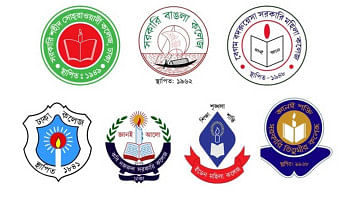KSA executes 8 Bangladeshis
Despite Bangladesh's repeated pleas for clemency, Saudi Arabia on Friday executed eight Bangladeshi workers for their involvement in a robbery and subsequent murder of an Egyptian security guard in Riyadh in 2007.
The migrant workers, who were beheaded in public in the Saudi capital, were Suman Mia from Kishoreganj, Mohammad Suman, Mamun Abdul Mannan, Masud Shamsul Haque and Shafiqul Islam from Tangail, Faruk Jamal from Comilla, Abul Hossain and Matiar Rahman from Faridpur.
Three other Bangladeshis -- Abdus Salam, Masud Rana, Alam -- were sentenced by the kingdom's highest court to imprisonment for different terms and flogging for their involvement in the incident, Bangladesh embassy officials in Riyadh told The Daily Star yesterday.
The 11 Bangladeshi workers killed Egyptian security guard Saeed Mohammed Abdulkhaleq while stealing electric cables from a warehouse in Riyadh on April 22, 2007, as documented in case statements.
Haroon-or Rashid, Labour Counsellor at the Bangladesh Embassy, said the workers were charged with murder, robbery and “creating a reign of terror.” They all confessed to the crimes in court, said the diplomat.
A huge crowd witnessed the executions at Justice Square near Al Hakam Palace in Riyadh.
Though Saudi Arabia carries out beheadings in public, execution of eight citizens of a single country at a time is rare, said Fakhrul Basher Masum, a Bangladeshi expatriate in Saudi Arabia.
The human rights watchdog Amnesty International has slammed the beheadings, noting that Saudi Arabia has recently seen a rise in the number of such executions. Court proceedings in the kingdom, said AI, fall far short of international standards for a fair trial.
Bangladesh embassy officials said when the case was taken to court, the embassy appointed lawyers for the Bangladeshi workers and contacted the victim's family through the Egyptian mission in Saudi Arabia.
“Two years ago, officials at the Egyptian embassy in Saudi Arabia informed us that Saeed's family had refused our offer of blood money in return for clemency for the Bangladeshi workers,” said Haroon-or Rashid.
Lawyers fought a legal battle for them at all levels. Bangladesh's foreign and expatriates' welfare ministries had repeatedly appealed to the Saudi authorities for clemency. Even President Zillur Rahman solicited pardon for the convicted from the Saudi king, said the labour counsellor.
Rashid said when Saudi Arabia's highest court issued the order for their execution in August 2009, the Bangladesh embassy made a final request to the kingdom's highest advisory council and the appeals court for clemency. But all efforts went in vain, he said.
Trials in the kingdom are conducted on the basis of Sharia laws and only the family of the murdered person has the right to grant clemency, he said.
Asked about bringing the bodies of the eight Bangladeshis home, Rashid said the Saudi authorities do not send bodies of people executed in the kingdom to their home countries.
In his comments, Expatriates' Welfare Secretary Zafar Ahmed Khan said, “We did all we could to save them, but failed.”
With Friday's beheading, the number of executions in Saudi Arabia this year stands at 58, 20 of which involved foreign nationals. The figure was 27 in 2010, says an Amnesty International report.
The human rights watchdog says defendants often have no lawyer and are unable to follow court proceedings in Arabic. They are rarely allowed formal representation by a lawyer, and in many cases are not informed of the progress of legal proceedings against them.
It observes that many of those executed have no access to influential figures such as government authorities or heads of tribes, or to financial resources -- crucial factors in paying blood money or securing a pardon when convicted of murder.
Hassiba Hadj Sahraoui, Amnesty International deputy director for the Middle East and North Africa, has said the increased number of executions in recent years in Saudi Arabia puts the country at odds with the worldwide trend against the death penalty.
“The government must establish an immediate moratorium on executions in the kingdom and commute all death sentences, with a view to abolishing the death penalty completely,” she said.
Saudi Arabia applies the death penalty for a wide range of offences. The accused may be convicted solely on the basis of confessions obtained under duress or deception, the report says.
Fakhrul Basher Masum, the Bangladeshi expatriate, said many foreign workers had no choice but to get involved in petty crimes for survival, as their employers often did not pay them their salaries.
Things are unlikely to improve unless such irregularities are done away with, he added.

 For all latest news, follow The Daily Star's Google News channel.
For all latest news, follow The Daily Star's Google News channel. 



Comments